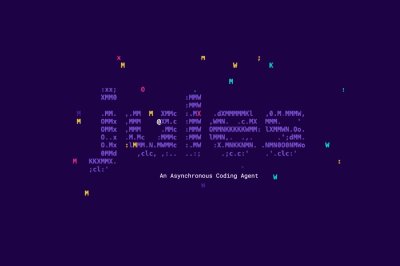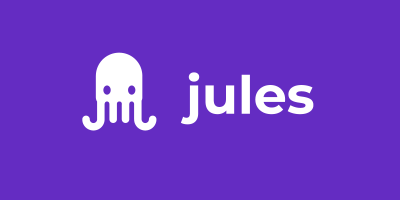Google's AI Dev Tools Architect: Ryan Salva on Shaping the Future of Code with Gemini CLI
@devadigax23 Sep 2025

The landscape of software development is undergoing a profound transformation, driven by the rapid advancements in Artificial intelligence. What was once the exclusive domain of human ingenuity is now increasingly augmented, and in some cases, redefined by intelligent algorithms. At the epicenter of this tectonic shift stands individuals like Ryan Salva, a Product Manager for developer tools at Google. With a direct hand in shaping critical offerings such as the Gemini CLI, Salva possesses a unique "front-row seat" to observe – and actively participate in – the radical ways AI tools are not just assisting, but fundamentally changing the very act of software creation.
The rise of AI in coding isn't a speculative future; it's a present reality. From intelligent code completion and suggestion engines that predict a developer's next line, to sophisticated systems capable of generating entire functions or even refactoring complex codebases, AI is permeating every layer of the development lifecycle. This paradigm shift holds immense promise: boosting productivity, democratizing access to complex coding tasks, and freeing developers from repetitive, boilerplate work to focus on higher-order problem-solving and innovative design. However, it also introduces new challenges related to code quality, security, and the evolving role of the human developer.
Ryan Salva's role at Google places him precisely at the intersection of these opportunities and challenges. As a steward of developer tools, his responsibility extends beyond merely introducing new features; it involves understanding the intricate workflows of millions of developers worldwide, identifying their pain points, and then leveraging Google's formidable AI research to craft solutions that are not just cutting-edge but also practical and empowering. His team's work is critical in translating complex AI models into accessible, usable tools that integrate seamlessly into existing developer environments, truly making "AI coding work."
A prime example of this integration is the Gemini CLI. While specific details about its capabilities might evolve, a Command-Line Interface (CLI) for an advanced AI like Gemini signifies a powerful direct conduit for developers to interact with AI. Imagine a developer needing to quickly generate a boilerplate code snippet for a new feature, or perhaps looking for an efficient way to script a complex deployment process. With Gemini CLI, they could issue a prompt directly from their terminal, leveraging Gemini's vast knowledge and understanding of programming contexts to receive instant, context-aware suggestions or even fully formed code blocks. This level of immediate, on-demand AI assistance drastically reduces friction and accelerates prototyping and development cycles.
The implications of tools like Gemini CLI extend far beyond mere convenience. They represent a fundamental shift in how developers approach problem-solving. No longer are they solely responsible for every character of code; instead, they become architects and orchestrators, leveraging AI as an intelligent co-pilot. This necessitates a new skill set: effective prompt engineering, critical evaluation of AI-generated code, understanding the limitations and biases of AI models, and crucially, maintaining the human touch in overall system design and ethical considerations. The developer's role evolves from that of a pure coder to a "synthesizer" of human intent and AI capability.
However, the journey is not without its hurdles. Ensuring the quality, security, and reliability of AI-generated code remains a paramount concern. "Hallucinations" – instances where AI models generate plausible but incorrect or non-existent information – are a known challenge that must be mitigated, especially in mission-critical applications. Furthermore, integrating these powerful AI capabilities into diverse development environments and workflows, while ensuring a smooth user experience and maintaining developer trust, requires meticulous design and constant iteration. Ryan Salva's team is undoubtedly grappling with these complex issues, striving to build tools that are robust, trustworthy, and genuinely additive.
Looking ahead, Google's vision, championed by leaders like Salva, appears focused on deepening the integration of AI throughout the entire software development lifecycle. This could mean more sophisticated AI assistants embedded directly into Integrated Development Environments (IDEs), intelligent agents that learn a developer's personal coding style and preferences, or even AI systems capable of autonomously identifying and fixing bugs in real-time. The goal is not to replace human developers, but to amplify their capabilities, enabling them to tackle more ambitious projects, innovate faster, and ultimately, build more impactful software solutions.
In essence, Ryan Salva's work with tools like Gemini CLI is a microcosm of a much larger industry trend. It's about empowering the creators of tomorrow with the most advanced tools available today. As AI continues its inexorable march into every corner of human endeavor, the ability to effectively wield and integrate these intelligent systems will become the defining characteristic of leading development teams. From his unique vantage point at Google, Salva and his team are not just witnessing this future; they are actively engineering it, one intelligent developer tool at a time, ensuring that the promise of AI-powered coding translates into tangible, transformative impact for developers worldwide.
The rise of AI in coding isn't a speculative future; it's a present reality. From intelligent code completion and suggestion engines that predict a developer's next line, to sophisticated systems capable of generating entire functions or even refactoring complex codebases, AI is permeating every layer of the development lifecycle. This paradigm shift holds immense promise: boosting productivity, democratizing access to complex coding tasks, and freeing developers from repetitive, boilerplate work to focus on higher-order problem-solving and innovative design. However, it also introduces new challenges related to code quality, security, and the evolving role of the human developer.
Ryan Salva's role at Google places him precisely at the intersection of these opportunities and challenges. As a steward of developer tools, his responsibility extends beyond merely introducing new features; it involves understanding the intricate workflows of millions of developers worldwide, identifying their pain points, and then leveraging Google's formidable AI research to craft solutions that are not just cutting-edge but also practical and empowering. His team's work is critical in translating complex AI models into accessible, usable tools that integrate seamlessly into existing developer environments, truly making "AI coding work."
A prime example of this integration is the Gemini CLI. While specific details about its capabilities might evolve, a Command-Line Interface (CLI) for an advanced AI like Gemini signifies a powerful direct conduit for developers to interact with AI. Imagine a developer needing to quickly generate a boilerplate code snippet for a new feature, or perhaps looking for an efficient way to script a complex deployment process. With Gemini CLI, they could issue a prompt directly from their terminal, leveraging Gemini's vast knowledge and understanding of programming contexts to receive instant, context-aware suggestions or even fully formed code blocks. This level of immediate, on-demand AI assistance drastically reduces friction and accelerates prototyping and development cycles.
The implications of tools like Gemini CLI extend far beyond mere convenience. They represent a fundamental shift in how developers approach problem-solving. No longer are they solely responsible for every character of code; instead, they become architects and orchestrators, leveraging AI as an intelligent co-pilot. This necessitates a new skill set: effective prompt engineering, critical evaluation of AI-generated code, understanding the limitations and biases of AI models, and crucially, maintaining the human touch in overall system design and ethical considerations. The developer's role evolves from that of a pure coder to a "synthesizer" of human intent and AI capability.
However, the journey is not without its hurdles. Ensuring the quality, security, and reliability of AI-generated code remains a paramount concern. "Hallucinations" – instances where AI models generate plausible but incorrect or non-existent information – are a known challenge that must be mitigated, especially in mission-critical applications. Furthermore, integrating these powerful AI capabilities into diverse development environments and workflows, while ensuring a smooth user experience and maintaining developer trust, requires meticulous design and constant iteration. Ryan Salva's team is undoubtedly grappling with these complex issues, striving to build tools that are robust, trustworthy, and genuinely additive.
Looking ahead, Google's vision, championed by leaders like Salva, appears focused on deepening the integration of AI throughout the entire software development lifecycle. This could mean more sophisticated AI assistants embedded directly into Integrated Development Environments (IDEs), intelligent agents that learn a developer's personal coding style and preferences, or even AI systems capable of autonomously identifying and fixing bugs in real-time. The goal is not to replace human developers, but to amplify their capabilities, enabling them to tackle more ambitious projects, innovate faster, and ultimately, build more impactful software solutions.
In essence, Ryan Salva's work with tools like Gemini CLI is a microcosm of a much larger industry trend. It's about empowering the creators of tomorrow with the most advanced tools available today. As AI continues its inexorable march into every corner of human endeavor, the ability to effectively wield and integrate these intelligent systems will become the defining characteristic of leading development teams. From his unique vantage point at Google, Salva and his team are not just witnessing this future; they are actively engineering it, one intelligent developer tool at a time, ensuring that the promise of AI-powered coding translates into tangible, transformative impact for developers worldwide.
Comments
Related News

Google's Jules Ignites AI Coding Agent Wars, Intensifying Battle for Developer Toolchain Dominance
@devadigax | 02 Oct 2025
@devadigax | 02 Oct 2025

Google's AI Coding Agent Jules Graduates from Beta: A Giant Leap for Automated Software Development?
@devadigax | 06 Aug 2025
@devadigax | 06 Aug 2025
 AI Tool Buzz
AI Tool Buzz